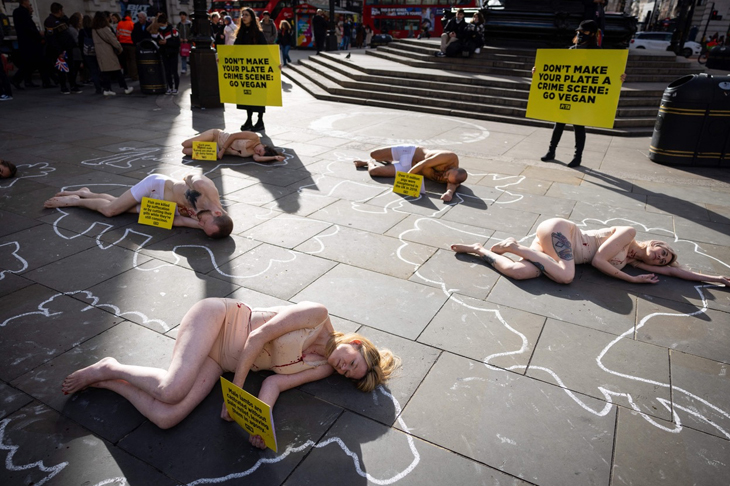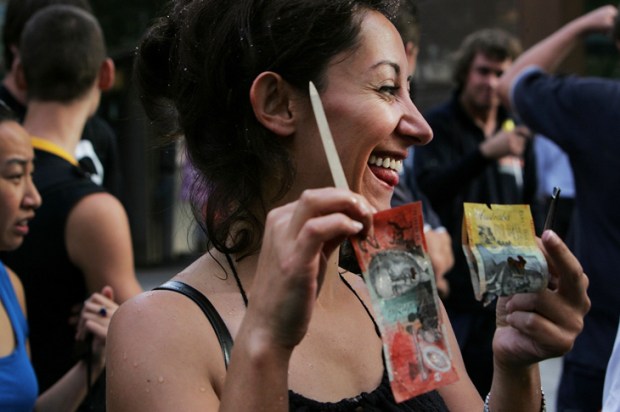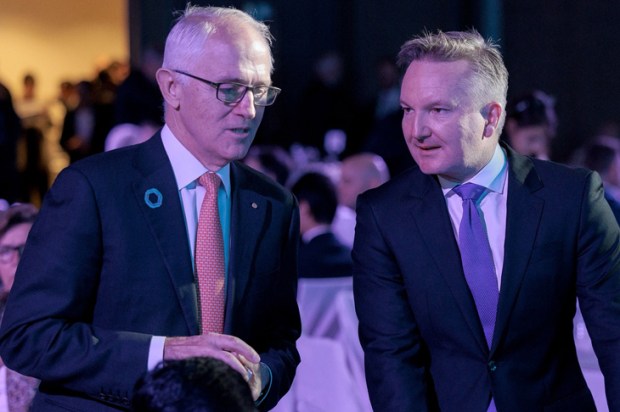There was a time when Australians held farmers in high regard. They admired their hard work, sympathised with their struggles and even donated cash when times got particularly hard, such as during extended periods of drought.
Between 2002 and 2004, for instance, close to $25 million was raised from the public as part of the Australian Farmhand Appeal. Headed by celebrity compere, Ray Martin, and sponsored by Channel 9’s program, A Current Affair, monies were distributed to over 18,000 struggling farming families.
It’s hard to see such an effort being repeated now. In many quarters – particularly the woke inner-city fiefdoms – farmers are either ignored or vilified for their contribution to environmental and climate damage. That’s right: farmers are regarded as climate villains rather than as worthy men and women who grow the food we eat and the fibre we wear.
The fact is that there are groups of environmental activists who are coming for our farmers. They disapprove of their practices, would prefer that the livestock industry didn’t exist at all and would be just as happy to see farmland revert to weed-invested wasteland planted with subsidised trees. They seek to impose veganism on others and attack specific practices of farmers such as mulesing in order to drive them out of business.
It has even got to the point where it’s de rigueur for climate-aware types to feign their dislike of horse-racing, notwithstanding the allure of new fancy outfits, expensive hats and being seen at the Birdcage at the Spring racing season in Melbourne.
This was made clear when vegan shoemaker, Jess Dadon, member of a super-wealthy family, declared this year that, ‘We understand that people enjoy the races. That used to be us (she is in partnership with her sister in the business).’
‘But the last race day we went to, we began to feel very guilty about what was happening: it started to feel strange that we were watching horses being raced for entertainment. It was Hunger Games-esque: all these people wearing beautiful clothes, having fun at animals’ expense.’
(Let me just explain here what vegan footwear is: it’s unattractive, chunky plastic sandals available in a variety of colours. The fact that plastic is a product of petroleum is, perhaps, something that hasn’t dawned on the sisters. But because the sandals are made from recycled material, albeit not leather, it’s ‘sustainable’.)
Getting back to horse-racing, where is the evidence that there is cruelty in allowing thoroughbreds to do what they love to do – race? Let’s face it, horses which compete in Group 1 races are among the most pampered animals around. And just think of the substantial number of jobs that hang off horse-racing. I guess the Dadon girls haven’t thought about that.
The green groups are also particularly hostile to graziers with their farting and belching animals contributing to methane output, a short-lived greenhouse gas, as well as nitrous oxide. The figures typically quoted are that the agriculture sector in Australia contributes around 11 per cent of the country’s total emissions and 70 per cent of these emissions are accounted for by livestock.
While there is talk about potential (and expensive) means of limiting methane emissions from animals – feeding them nitrate supplements or seaweed pellets – the real aim of many climate activists is to reduce herd sizes significantly. As mainly non-meat eaters themselves, they have little sympathy for farmers who raise livestock for a living.
This is also a very live issue in New Zealand, where the importance of agriculture is proportionately greater than in Australia. In fact, that country’s legislated climate commitment to net zero emissions by 2050 explicitly excludes emissions from agriculture which, incidentally, make up close to 40 per cent of total emissions. It’s one reason that the much lauded Prime Minister of that country, Saint Jacinda, shied away from the recent Glasgow climate talkfest.
Even so, there is pressure on farmers in New Zealand – who were also once an admired group of hardy stalwarts – to contribute to lowering emissions. They are already feeling squeezed by the government’s climate plan that involves massive reforestation that inevitably leads to the resumption of farming land for non-farming purposes.
The chairman of the government-appointed Climate Change Commission in that country also openly advocates New Zealanders to eat less meat or eat no meat at all. In addition to telling everyone one to walk or cycle rather than drive, he loves the idea of meatless Monday and Tuesday and Wednesday and (you get it).
Needless to say, there is a large overlap between anti-agriculture climate activists and those whose apparent main concern is animal welfare. But when it comes to animal welfare, there is a large gap between real concern and grandstanding.
Take the ban on the sale of live cattle following some dodgy camera work illegally done in Indonesia which apparently demonstrated the cruel treatment of ‘Australian’ beasts, an ABC exposé and a panicked government response. There is no doubt that many more animals died brutally as a result of this ban – a ban for which the graziers were eventually compensated – than with the live-cattle trade in operation. Oh well.
And then there is the campaign by PETA – People for the Ethical Treatment of Animals – to prohibit the practice of mulesing merino sheep (clipping off excess wool-bearing skin around the breech) in order to prevent parasitic flystrike. To be sure, there are kinder ways of undertaking mulesing (and this is now being done). But the idea that outlawing mulesing is somehow more caring than allowing an animal to be affected by flystrike that causes pain and suffering (and sometimes death) is a strange equation.
Attempts have been made to genetically breed sheep to prevent excessive growth around the breech. But these attempts have largely failed. Most sheep farmers will tell you that mulesing is in fact a humane practice for Australian conditions. But PETA understands the chain – get to the final customers, the buyers of Australian fine merino wool (Italian suit manufacturers, for instance), and spin them a yarn (gettit?) about the cruel practice of mulesing. The aim is to force an unjustified change by dint of pressure from gormless overseas buyers.
You all know the joke: how do you know someone is vegan? They will tell you. These climate/animal activists are a pushy lot and they are coming for our farmers. It’s time that others began to stand up for the farmers before it’s too late.
Got something to add? Join the discussion and comment below.
Get 10 issues for just $10
Subscribe to The Spectator Australia today for the next 10 magazine issues, plus full online access, for just $10.
You might disagree with half of it, but you’ll enjoy reading all of it. Try your first month for free, then just $2 a week for the remainder of your first year.














Comments
Don't miss out
Join the conversation with other Spectator Australia readers. Subscribe to leave a comment.
SUBSCRIBEAlready a subscriber? Log in